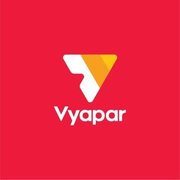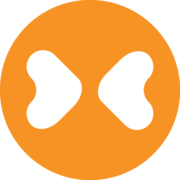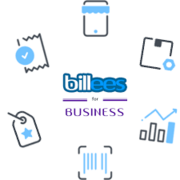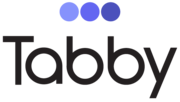
Best Accounting Software 2026
Accounting software automates and streamlines financial management, from core functions like accounts payable and receivable to complex tasks like ledger management and reporting. They are aimed at enhancing accuracy, providing real-time financial insights, and ensuring compliance. Advanced systems integrate with other business tools, supporting everything from expense tracking to payroll. Explore user reviews and comparisons to find the best accounting software for your business.
We’ve collected videos, features, and capabilities below. Take me there.
All Products
Videos for Accounting
Learn More about Accounting Software
What is Business Accounting Software?
Accounting Software records and processes accounting transactions and serves as an accounting information system from which decision makers or company accountants can monitor business processes and generate financial reports.
Their essential feature is an interactive financial dashboard with a general ledger for handling double-entry bookkeeping. Common features to this class of software include:
- Means of tracking company inventory and purchase orders
- Sales tracking
- Automated invoicing
- Receipt capture via document or image processing
- Timekeeping
- Analytics for budgeting and revenue tracking
- Financial reporting
- Accounts payable/accounts receivable functions.
These features are either contained intrinsically (within the accounting software) or managed via integration with third-party software(e.g. dedicated AR or AP software, Expense Management Software, Image Capture Software, etc.).
An automated ERP (Enterprise Resource Planning) system contains all of these functions (or supports integration with the requisite modules), thus these products appear in this category as well. However ERPs are often industry specific or scaled to the needs of larger companies. They may represent overkill for seekers of pure and simplified accounting solutions for their business.
Some vendors offer specialized accounting software dedicated to handling the regulatory and reporting needs specific to some industries, like construction or manufacturing. Either an all-in-one solution or a package bundled with smaller, dedicated integratable modules could be the best approach, depending on business needs.
Small Business Accounting Software
Accounting & Budgeting Software offerings vary a great deal in complexity. Simple, inexpensive or free platforms are available for entrepreneurs and smaller companies, while medium-sized or larger companies may find use for more complex software possessing a greater breadth of features or deeper processing capacity and higher usage limit caps (like unlimited invoicing or the ability of a larger number of users to access the system).
Small businesses may also only require bookkeeping software, which focuses on recording financial transactions via a general ledger and managing payroll. Since bookkeeping tools are more simplistic, these products may be easier for simpler businesses without accounting experience to learn and use.
True SMB accounting software is distinguished by having better tools for financial data management, reporting, analytics, tax preparation, etc. SMB accounting tools have become increasingly affordable in recent years, making them the preferred choice for most businesses. When evaluating accounting tools, small businesses may want to pay particular attention to these areas:
- Cost
- Usability and training requirements
- Efficiency
- Scalability and limitations, including number of customers/invoices/users/transactions per month
- Customer support
- Support for tax preparation and filing
- Reporting
- Mobile functionality
- CPA access (unless you manage your own finances)
- Credit card processing, tax preparation, and payroll services
- Integrations to third-party tools
Accounting Software Features & Capabilities
General ledger features make up the core of most accounting & budgeting platforms. Inventory, order, and payroll management features may be included as modules within the platform, or may be handled by third-party plug-ins; some of these features are industry specific.
Accounting tools also include reporting and customization/integration features (like dashboards and an API for custom integrations) that are common across many software categories. Additional capabilities are relevant for accounting firms who manage finances for multiple businesses.
General Ledger Features
The general ledger is a record of transactions and balances. These features comprise the basic bookkeeping functionality of the software:
- Accounts payable and receivable
- Cash management
- Bank reconciliation
- Expense management
- Time tracking
- Fixed asset management
- Multi-currency and multi-division support
- Regulations compliance
- Electronic tax filing
- Self-service portal
Inventory Management Features
These features give businesses the ability to track and manage the flow of goods or materials into and out of an inventory. They are relevant to industries with physical inventories, like retailers and suppliers. Inventory management functionality addresses:
- Inventory tracking
- Automatic reordering
- Location management
- Manufacturing module
Order Management Features
This feature set gives businesses the ability to process orders and track them from quote to cash. Order management is relevant to businesses that deal in services or goods and materials. For example, eCommerce retail vendors need to manage product orders and pool maintenance companies need to manage work orders. Basic order management features are:
- Pricing
- Order entry
- Credit card processing
- Calculating cost of goods sold
Payroll Management Features
Payroll management features are relevant for handling the costs and money flow associated with a company's workforce. These may be more or less sophisticated depending on the scale of the business and the type of employees (e.g. full time, part time, contractors, etc). Payroll management features include:
- Pay calculation
- Benefit plan administration
- Direct deposit files
- Salary revision and increment management
- Reimbursement management
Accounting Firm Features
These features are relevant to accounting firms using the product on behalf of clients:
- Branded dashboards, with a unique view for each client with the accounting form name and logo displayed
- Client roll-up capabilities that allow users to aggregate data for multiple entities within one client (e.g. data for all convenience stores within a certain zip code)
- Data consolidation across clients within a vertical market to provide a benchmark for performance measurement/comparison
- Configurable alerts for overdue forms and materials
- Billing bypass options (software vendor bills firm; firm bills clients)
- Client template cloning for setup, report format, and dashboards
- Single sign-on for access to all customer accounts
- Configurable client onboarding questions
- Cross-client workflow management
- Industry-specific versioning
- Legacy system data migration
Accounting Software Comparison
To compare different accounting platforms, consider the scale of unique accounting tools your business will need. Most accounting solutions will include standard accounting capabilities like General Ledger (GL), Accounts Payable and Accounts Receivable (AP/AR), bank reconciliation, fixed asset management, expense tracking, invoicing capabilities, and financial reporting capabilities.
Some businesses will need additional features like inventory management, payroll capabilities, dedicated budgeting features, and cash flow analysis. Smaller businesses may only need simple bookkeeping capabilities, and can forego the more advanced reporting, inventory management, and other capabilities. Some companies may require a comprehensive ERP (Enterprise Resource Planning) system, rather than a solution that focuses exclusively on accounting.
Even though many businesses have a unique set of functionality requirements, there are a few accounting ‘must-have’ criteria that a majority of buyers agree on. Common comparison points for buyers include:
- Intuitive, easy-to-use UI:
- Third-party integrations
- Robust reporting capabilities
- Cloud-based software
- Invoicing capabilities
Pricing Information
Accounting software is most frequently offered on a subscription or perpetual license basis, particularly for online software. For very small use cases, some software is offered on a 1-purchase basis. For small businesses, subscriptions are available for less than $100/month. However, pricing can increase and vary more as buyers' accounting needs scale in size and complexity. Products for larger organizations may be priced by the modules selected within the product, required integrations, or number of transactions or users.
For large businesses and enterprises, accounting capabilities are frequently included with Enterprise Resource Planning (ERP) products. These platforms can be much more expensive than standalone accounting software. ERPs can also provide additional capabilities that may be more efficient to bundle with accounting processes if a businesses needs both products.
More Resources
- Best Accounting Software for Small Businesses
- Cash vs. Accrual Accounting: Tool Differences
- 50 Essential Accounting Terms and Definitions to Know
TrustRadius Methodology
TrustRadius category pages are created by the TrustRadius Research Team. The mission of the TrustRadius Research Team is to ensure that our review platform is the most useful, trustworthy, high-quality information source for technology buyers. We seek to help technology buyers make more informed decisions with less stress.
We do this by:
- Understanding and accurately covering hundreds of software categories, including category descriptions and product details.
- Ensuring the authenticity and quality of the reviews and ratings we collect and publish. Read more about our reviews, including how we authenticate and source reviews here.
- Researching the technology buying process, recommending new site features to support the buyers’ journey, and advising tech vendors on how to earn the trust of their buyers.
We know that buyers on our site are using reviews—trusted feedback from their peers—to make important decisions, which is why we’ve taken steps to ensure that the scores you see on this category page reflect the true sentiment of software users. Read more about TrustRadius scoring, category sort methodology, and more here.























